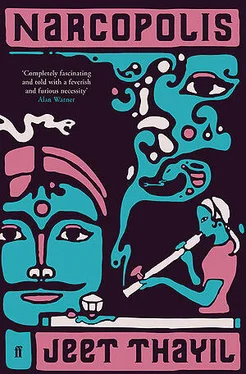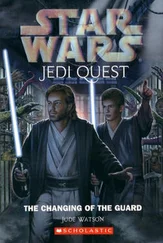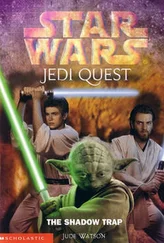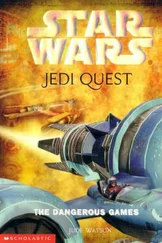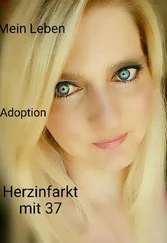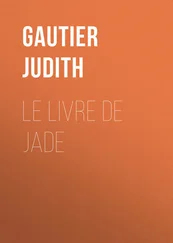whatever one’s social standing?’ and what reply could I have made when he wasn’t expecting one, was already nodding as I watched the woman, watched Dimple, and something calmed me in the unhurried way she made the pipe, the way she dipped the cooking needle into a tiny brass pyali with a flat raised edge, the pyali the size of a thimble, filled to the brim with treacle, a liquid with the colour and consistency of oil, and she was rolling the tip of the needle in the opium, then lifting it to the lamp where it sputtered and hardened, repeating the procedure until she had a lump the size and colour of a walnut, which she mixed against the bowl until it was done, then tapped the needle against the pipe’s stem, indicating to me that my smoke was ready, it was, but the pipe was too long, I couldn’t manage the heaviness of it, and though I sucked when she held the bowl to the flame, the mouthpiece was too large, the taste too harsh, and when the pipe clogged she took it briskly away to apply the needle once more, saying in English, ‘Smoke, pull hard,’ Rashid saying, ‘Watch Dimple, she’ll show you,’ and she did, shaking the hair out of her eyes, expertly and elegantly fitting the pipe to her mouth, taking a long clean drag, the smoke seeming to disappear, so when she gave me the pipe I was very conscious that it had been in her mouth, and she said, ‘Pull deep and keep pulling, don’t stop, because if you stop, the opium will burn and there’s nothing you can do with burned opium but throw it away, so pull until you can’t pull any more,’ and me, in my ignorance, saying, ‘Do I take a single continuous drag?’ ‘You can, but then you have to recycle it inside your lungs, better to take short pulls,’ ‘How long should I hold it in?’ ‘So many questions, it depends how much nasha you want, hold it as long as you like, but don’t put the whole pipe in your mouth, not polite,’ and I said, ‘Sorry,’ and quickly moved the pipe away and brought it back to my lips with care, fitting it carefully, taking my time, understanding that opium was all etiquette, a sense rhythm that centred on the mouth and the way you held the pipe in relation to your body, a lunar ebb and pull of smoke that filled first the lungs and then the veins, and when I looked up she was smiling and so was Bengali, and Rashid said, ‘Here people say you should introduce only your worst enemy to opium, maybe Dimple is your worst enemy,’ and I was thinking maybe she isn’t, maybe I is, maybe the O is the I and I is unreliable, my memory like blotting paper, my full-of-holes, porous, shreddable non-memory, remembering details from thirty years ago but this morning a blank, and if memory = pain = being human, I’m not human, I’m a pipe of O telling this story over the course of a single night, and all I’m doing, the other I that is, I’m writing it down straight from the pipe’s mouth, the same pipe Dimple made the first time, but that story’s for later — okay, here we go, we’re coming to the best part now, the dreams which aren’t dreams but conversations, visitations from absent friends, a raucous procession behind your closed eyelids, your awake and dreaming eyes, and sometimes a voice wakes you, your own voice talking to someone who isn’t there, because you’re alone, on your back, sailing the opiate sea, no, I’ll pass this time, I’m fine, oh yes, beautiful even — the same I who, when they put me in jail, noticed the cell wasn’t much smaller than the room I was living in at the time on the Upper East Side, when they caught me buying dope, stoned on downers, and the white cop pulled his gun and chased me down the alley and I saw the dead end and turned, reaching in my pocket to give him the baggies, and the cop didn’t shoot, for some reason he didn’t shoot, he put me in a van and took me to jail, where, as I say, the cell was the size of the room I was living in and I was happy enough to be there and alive, and later I was sent back to India and I found Bombay and opium, the drug and the city, the city of opium and the drug Bombay — okay, time now for a short one, the night’s almost over, a short one to keep the O boat sailing on its treacle tide, and this time all I’m going to do, I’m turning my head and inhaling, you do the rest — and ever since I’ve tried to separate the one from the other, or not, because now I’m giving in, I’m not separating but connecting, I’m giving in to the lovely stories, I’m lighting the bowl, one for me and one for me, I’m tasting it one last time, savouring the colour and the bouquet, the nose of it, yes, like that, so good, and then I’m stopping, because it’s time now to subside into silence and let the other I speak.
Before Dimple came to be called Zeenat, she worked part-time for Rashid and disappeared every evening to the hijra’s brothel. I smoked at her station even if other pipes were free, and we talked the way smokers talk, horizontally, with long pauses, our words so soft they sounded like the incomprehensible phrases spoken by small children. I asked the usual foolish questions. Is it better to be a man or a woman? Dimple said: For conversation, better to be a woman, for everything else, for sex, better to be a man. Then I asked if she was a man or a woman and she nodded as if it was the first time she’d been asked. She was about twenty-five then and she had a habit in those days of shaking the hair into her eyes and smiling for no reason at all, a sweet smile as I remember, with no hint there of the changes that would overtake her.
She said: Woman and man are words other people use, not me. I’m not sure what I am. Some days I’m neither, or I’m nothing. On other days I feel I’m both. But men and women are so different, how can one person be both? Isn’t that what you’re thinking? Well I’m both and I’ve learned some things, to my cost, the kind of thing you’re better off not knowing if you mean to live in the world. For example I know something about love and how lovers want to consume and be consumed and disappear into each other. I know how they yearn to make two equal one and I know it can never be. What else? Women are more evolved biologically and emotionally, that’s well known and it’s obvious. But they confuse sex and the spirit; they don’t separate. Men, as you know, always separate: they separate their human and dog natures. And then she said, I’d like to tell you more about it, about the family resemblance between men and dogs, because I have plenty to say, as you may have guessed, but what would be the point? There’s little chance you’d understand, after all you’re a man.
*
She’d learned English by conversing with customers and she was teaching herself to read. She knew enough of the alphabet to recognize some of the words in the newspapers and film magazines that came her way, or the paperback novels forgotten by customers at the khana, or the print on detergent packets and toothpaste tubes. Bengali gave her books sometimes, usually history, but also philosophy, geography, and illustrated biographies with titles like Great Thinkers of the Twentieth Century and One Hundred Great Men of the World . He found the books in the raddi shops around Shuklaji Street, which was a centre of the trade in used paper, rags, toys, junk of all kinds. He gave her books and she read in secret, because she didn’t like to be seen reading. She read the way an illiterate person reads. She liked to look at the covers and trace the title with a finger, and if she was able to make sense of a line or a word, it gave her a thrill.
*
I was stretched out, the khana empty in the dead hour of the afternoon, when Dimple asked what kind of book I was reading. It’s not a book, I said, it’s a magazine and this is a story about an Indian painter who lives in London.
Читать дальше
